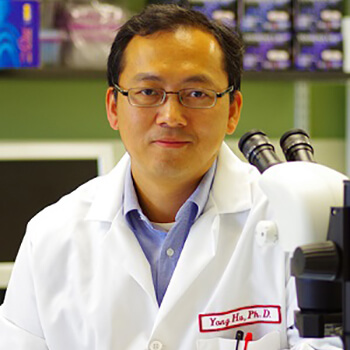
Yang
Hu
MD, PhD
Location
Stanford, CA, USA
Current Organization
Stanford University
Biography
I have a strong longstanding interest in neurodegeneration and axon regeneration, especially in retina and optic nerve tissue. My lab focuses on understanding the mechanisms responsible for neuronal degeneration and axon regeneration after injury or diseases, with the goal of building on this understanding to develop effective strategies to promote neuroprotection and functional recovery. We were the first to discover that optic nerve injury induces endoplasmic reticulum (ER) stress and activates the classical unfolded protein response (UPR) pathways. We subsequently demonstrated that manipulation of UPR pathways in different ways synergistically increases survival of RGCs, delays optic nerve degeneration and preserves vision after optic nerve traumatic injury or glaucoma. Based on these findings we propose that neuronal ER stress is the common mechanism for neurodegeneration. Consistently, we detected ER stress in RGCs in experimental autoimmune encephalomyelitis (EAE a rodent form of multiple sclerosis) and optic neuritis models, and modulation of ER stress also has similar protective effects on RGCs and the optic nerve. We also pioneered in elucidating the neuronal intrinsic control of optic nerve regeneration. We demonstrated that AKT (protein kinase B), interacts with mTORC1 and mTORC2 and their downstream effectors S6K1, 4E-BP and GSK3β to coordinate optic nerve regeneration. We actively work on developing novel adeno-associated virus (AAV) vectors and RGC specific promoters/enhancers for AAV-mediated gene therapy to promote neuroprotection, axon regeneration and functional preservation of vision in optic neuropathies.
Other Grants Featuring This Grantee
National Glaucoma Research
Studying Gene Regulation Networks in Retinal Ganglion Cells for Novel Neuroprotective Targets
Active Dates
July 01, 2018 - June 30, 2022

Principal Investigator
Yang Hu, MD, PhD
Current Organization
Stanford University
National Glaucoma Research
Neuroprotection by Inhibition of ER Stress in Glaucoma
Active Dates
July 01, 2013 - June 30, 2015

Principal Investigator
Yang Hu, MD, PhD
Current Organization
Stanford University



